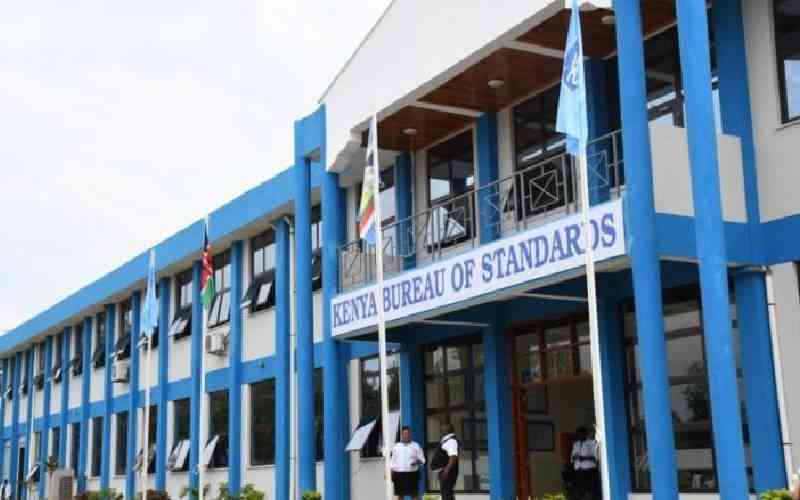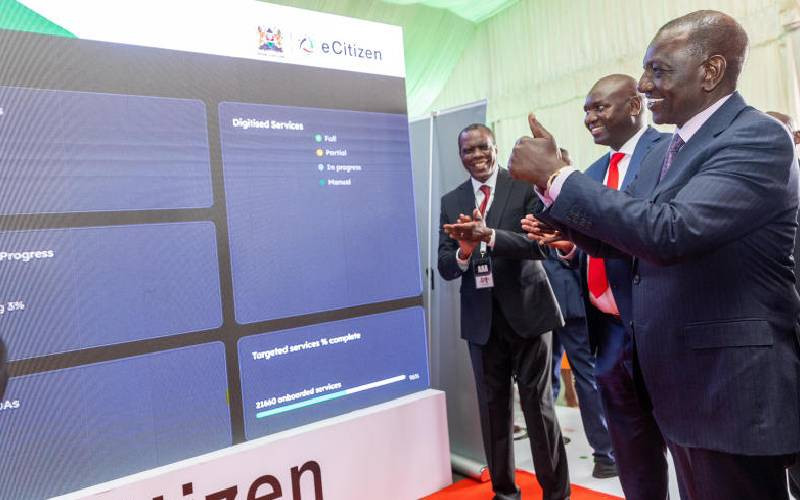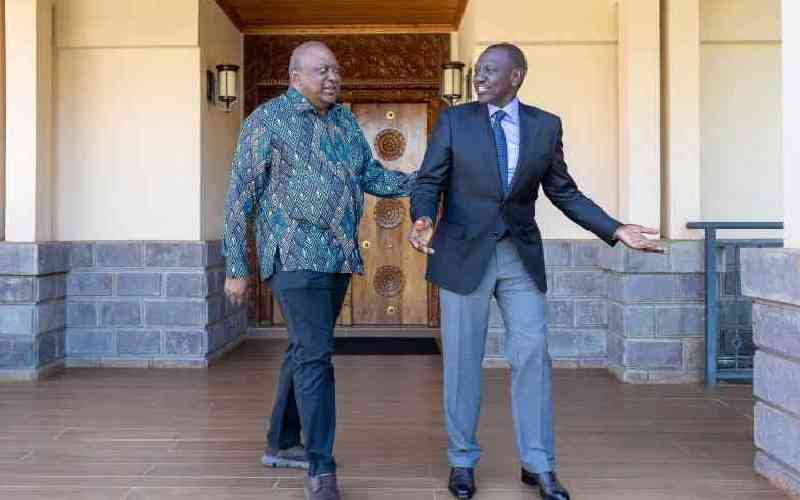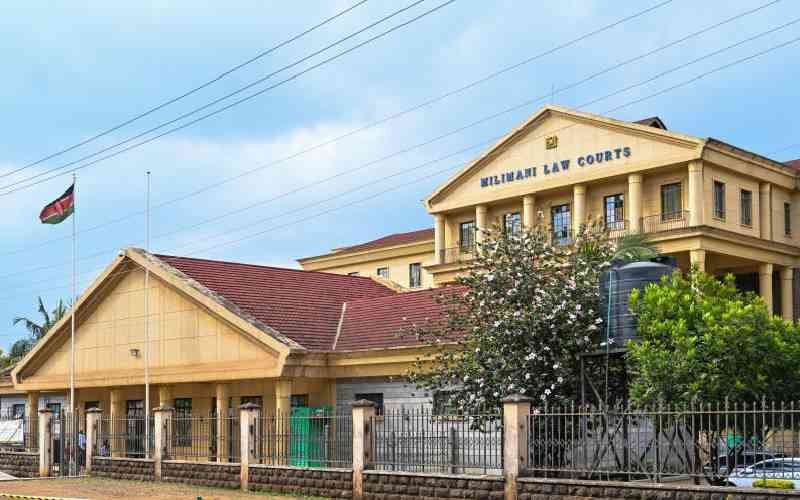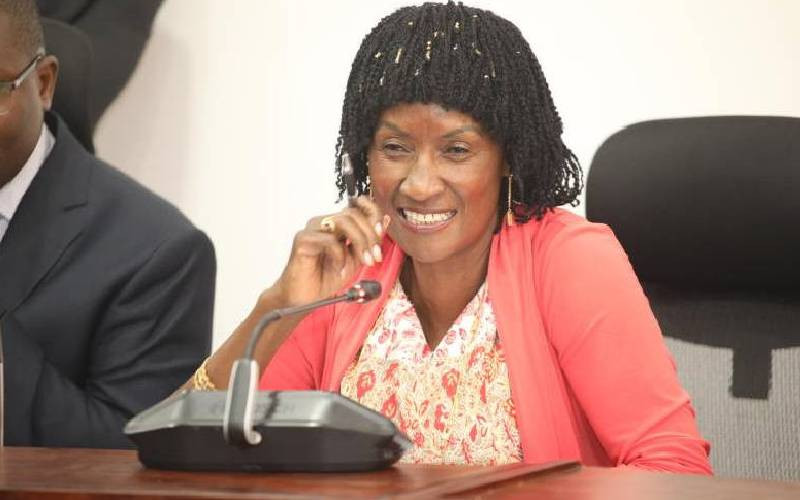
The High Court has revoked a title issued to a former District Officer after finding that the property right next to the State House in Mombasa was illegally transferred.
In another indictment to former Commissioner of Lands Wilson Gachanja, Justice Nelly Matheka ruled that the prime land was not available for transfer to private citizens.
The Judge condemned former District Officer Edward Mwangi Irungu and Minalove Hotel and Restaurant for interfering with the property and ordered them to pay the government Sh5 million.
“The first defendant (Mwangi) acquired title to the suit property illegally by way of a corruption scheme with the aid of the fourth defendant (Gachanja) and other officials at the office of the then Commissioner of Lands. The title held by the 2nd defendant (Minalove) cannot stand and is nullified as per Section 80 of the Land Registration Act,” said Justice Matheka.
The Ethics and Anti-Corruption Commission (EACC) filed the case, suing Mwangi, Minalove, Equity Bank, and Gachanja.
The anti-graft body argued that on March 18, 1997, SM Kagwe, on behalf of the Commissioner of Lands, issued Mwangi an allotment letter for a 99-year term.
The court heard that the allotment was followed by a lease dated April 9, 1998 issued by Gachanja.
EACC stated that the land was illegally transferred. It asserted that Mwangi acquired the property through a corrupt scheme and that it was set aside for public use.
According to EACC, the property had been set aside through a letter dated October 28, 1955 for government staff housing.
It stated that by March 8, 1991, the same was occupied as the government staff quarter.
The commission asserted that it was impossible to allocate the property for private use as it was right next to the Mombasa State House.
Mwangi and Gachanja opposed the case.
Mwangi claimed that the contested property was never public property and that the title was acquired legally.
Mwangi produced a letter dated May 24, 1996 claiming that it was used to secure the allotment.
Stay informed. Subscribe to our newsletter
Gachanja also took Mwangi’s stand in the case.
In the meantime, Minalove argued that it was an innocent purchaser as the title presented to it was genuine.
Nevertheless, Justice Matheka observed that Mwangi's letter could not be genuine as it did not bear the commissioner of lands stamp.
In addition, the judge said the minutes produced, which were alleged to have been from the plots’ allocation committee, refer to plots within Likoni and Miritini rather than Mombasa Island, where the property is located.
She said that Mwangi had failed to prove that Gachanja had powers to allocate land to him.
“The fourth defendant had no authority to alienate the suit property to the first defendant as he purported to do, as it was the preserve of the president. The fourth defendant had no authority to issue grant under the Government Lands Act, nor could he pass any registerable title under the Registered Land Act. It is the finding of this court that the government of Kenya was the original owner of the suit property hence no further title could be issued to a private individual as the first defendant. Therefore, the issuance of allotment dated March 18, 1997 and the subsequent certificate of lease dated April27, 1998 was irregular and nullified from the start,” she said.
In the case, Mwangi told the court that he worked in the government as an administrator for 43 years.
He said that he worked in Mombasa between 1995 and 1998.
From the judgment, he admitted that there was a government house in the property and that it boarded the former Provincial Commissioner’s residence.
He, however alleged that there was a policy of disposing government property.
Justice Matheka said that this was untrue.
He said that Mwangi worked with Gachanja to benefit from the land.
“The allegation he made on cross examination that there was a policy of disposing of government property is unfounded, irregular in law and cannot stand to support his claim in the suit property. Fraud has everything to do with one’s state of mind and intentions as well as the outcome of those intentions. Being in a position of influence and power, as he then was, in the administration of government, the first defendant took advantage and connived with the fourth defendant to fraudulently hive off the suit property and alienate it to himself,” she said.
The Judge also ruled that Equity could not enjoy court’s protection as it never did due proper diligence before using the title to secure Sh10 million loan it issued to Minalove.
The bank however never participated in the case.
“The third defendant, though failing to participate in this proceeding may not have been privy to the fraudulent transactions but failed to undertake proper due diligence. They ought to have gone beyond an official search from the land registry, maybe a search at the Department of survey of Kenya, that would have led them to discover that the suit property is oddly sandwiched by government land. That is a legal obligation they took lightly, they did not look beyond a mere search and for that it has cost the charge they sought to secure,” said Justice Matheka.
 The Standard Group Plc is a
multi-media organization with investments in media platforms spanning newspaper
print operations, television, radio broadcasting, digital and online services. The
Standard Group is recognized as a leading multi-media house in Kenya with a key
influence in matters of national and international interest.
The Standard Group Plc is a
multi-media organization with investments in media platforms spanning newspaper
print operations, television, radio broadcasting, digital and online services. The
Standard Group is recognized as a leading multi-media house in Kenya with a key
influence in matters of national and international interest.
 The Standard Group Plc is a
multi-media organization with investments in media platforms spanning newspaper
print operations, television, radio broadcasting, digital and online services. The
Standard Group is recognized as a leading multi-media house in Kenya with a key
influence in matters of national and international interest.
The Standard Group Plc is a
multi-media organization with investments in media platforms spanning newspaper
print operations, television, radio broadcasting, digital and online services. The
Standard Group is recognized as a leading multi-media house in Kenya with a key
influence in matters of national and international interest.


